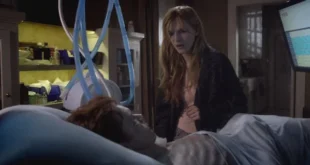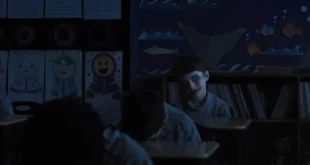Before we get into the dark side of Cinderella, let me pose a question to you all: how many of you are familiar with the Disney version of the Cinderella story?
Most of you remember the beautiful young orphan, exploited by a wicked stepmother and her toadie daughters. Add to that the fairy godmother, glass slipper, and the smitten prince, and you have the essential elements of the animated film.
The Earliest Known Versions of the Story
Considered the earliest known renditions of the Cinderella story, the Greek historian Strabo recorded the story of a Greek slave girl who married the king of Egypt. Called Rhodopis, the story dates back to the 6th century BC, and was created by a woman of Thracian origin, named Doricha. She was enslaved alongside well known Greek fablist Aesop, with whom she had a love affair.
The version most like the one we’re familiar with wasn’t published until 1697: a French story written by Charles Perrault entitled Cendrillon ou la Petite Pantoufle de Verre. This version introduces the evil stepmother, equally evil stepdaughters, along with the pumpkin, the fairy godmother, the prince, the ball, and the glass slipper. This is the version of the story Disney is purported to have used for inspiration.
It was another version, Aschenputtel, authored by the Brothers Grimm in 1812, which put a much less sanitized spin on the story, and opened the door for horror to use the material as fertile nightmare fuel. In this version, there is no fairy godmother, Aschenputtel’s father doesn’t die, though he is indifferent to her and deferential to her new stepsisters, and the glass slipper returns with extreme efforts to fit into it.
With that backstory out of the way, I present a couple of contemporary versions in the horror genre that you may not soon forget.
The Ugly Stepsister

The Ugly Stepsister is a body horror offering that centers itself not on Cinderella herself (in this version the character’s name is Agnes), but rather on Elvira, the eldest daughter of Rebekka, the evil stepmother. Not conventionally attractive, Elvira has a dream of being courted by Prince Julian. Rebekka hopes to facilitate that union in order to resolve the financial hardship left when Agnes’ father dies, and is subsequently revealed to have been title rich but cash poor.

When the prince summons all the young women to join him at court so that he may select his bride, Rebekka uses what money she has left to embark on beautifying Elvira, including a rather primative rhinoplasty, the use of tapeworms to control her weight, sewn on eye lash extensions, and other such drastic changes.
In the meantime, Agnes is horrified to discover that her now deceased father has been left to decompose in one of the barns as her family’s land is being sold off to settle unpaid debts, and she has no protection from her stepmother’s less than savory acquaintances.

Beautifully shot, and told from a perspective that is unique for this fairytale, it earns the moniker of “Cinderella meets Cronenberg,” and enjoys a 96% fresh rating on Rotten Tomatoes. I would highly recommend it, but just make sure you watch it on an empty stomach!
Cinderella’s Revenge
Cinderella’s Revenge might be one of the weirdest films I’ve ever seen.
The story follows the basic Cinderella storyline, but the evil stepmother is a murderess, her daughters are thugs, and the fairy godmother (played by Natasha Henstridge) gives Cinderella a mask to use when she goes around killing those who have wronged her.

The film is supposedly set in Victorian era England, but not all the accents are English, and when it comes to designing a dress or transportation to the ball, instead of doing it herself, the fairy godmother zaps characters like Tom Ford, Vidal Sassoon and Elon Musk into existence. What? And before you wonder if the real people played those characters, keep in mind this was a direct to streaming film currently available on Tubi.

The movie starts with a pop song intended to promote women’s empowerment, but it just seems out of place in a movie like this, and while I may have appreciated some of the action, it was more than a little bizarre to watch Cinderella as a masked killer.
Unsurprisingly, it currently holds a 0% fresh rating on Rotten Tomatoes, having been reviewed just three times by critics. And on the Internet Movie Database it is rated 3.7/10. I would not recommend this one unless you’re completely desensitized by the proliferation of terrible Amityville sequels.
Have you seen either of these? What horror re-imagined fairy tale should I cover next? Drop your comments below!
Until next time…
JK away!
 Talk Horror The Mouth of Madness
Talk Horror The Mouth of Madness




